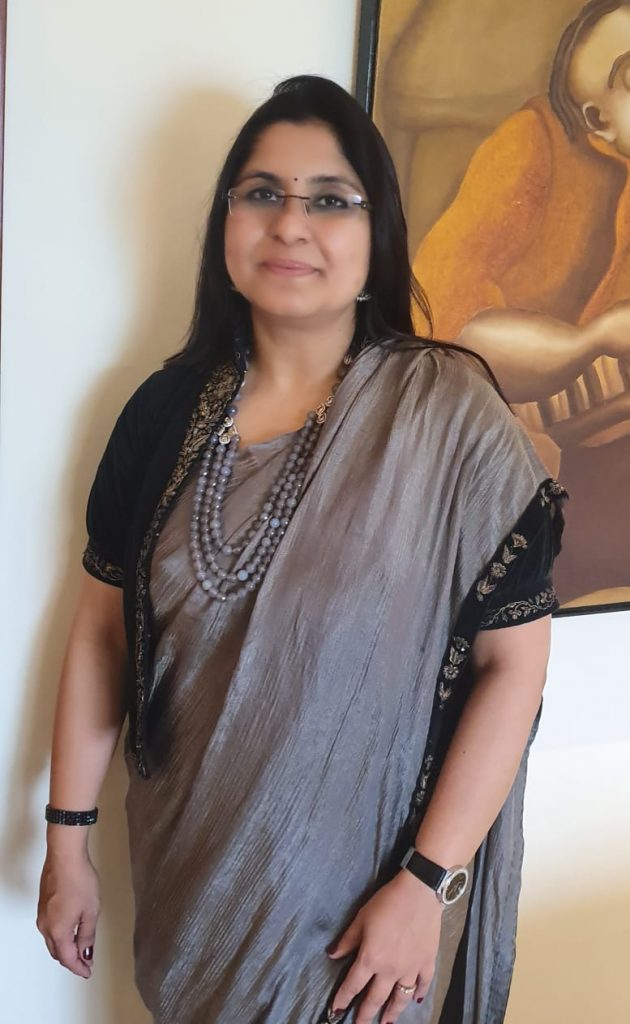
The Indian language industry is witnessing unprecedented demand for services and technology in Indian languages. On that backdrop, we asked 3 key questions to the person who is working closely with industry, technology and governments. Here are her detailed, candid and straight-from-the-heart answers. We are happy to present to you the guest of the month, Ms Sarika Gulyani, Director, and Head-ICT, Digital Economy & FICCI-ILIA (the Indian Language Internet Alliance Division at the Federation of Indian Chambers of Commerce & Industry) at FICCI. (More about her here).
- It is very interesting that India’s premier industry body, FICCI, felt the need to form FICCI-ILIA (The Indian Language Internet Alliance). What drove this decision?
Since its foundation in 1927, FICCI has always been working with the industry and the Government of India for the sustainable development of the Indian economy. With the same intentions and further understanding the huge role played by the internet as an effective tool of socio-economic development, and how Indic language can further act as a catalyst for this transformation, FICCI launched FICCI-ILIA initiative in 2017. FICCI-ILIA is an alliance which works with different stakeholders of the ecosystem for the growth of the language industry of India. One of the biggest concerns and the reason behind the foundation of this alliance was the language technology industry of India working in silos, and the crucial need of a neutral platform for the promotion of the sector. FICCI-ILIA is an alliance of multiple stakeholders working in the Indic Internet and Language Technology domain to unite, collaborate and cooperate for the bigger goal.
2. And how is the Government of India supporting this initiative?
The Government of India has always been supportive of this initiative from day one. In fact, the FICCI-ILIA initiative was launched by the then State IT Minister, Shri P.P. Chaudhary. FICCI-ILIA’s flagship annual symposium ‘Bhashantara’ has been partnered and supported by the Ministry of Electronics and IT, Government of India every year. We recently hosted a technology-based language translation competition ‘BhashaAnuvad’, which was highly appreciated by both the Government of India and industry partners. Besides these, FICCI-ILIA has also partnered with State Governments of Maharashtra, Karnataka, and Rajasthan in initiatives like Marathi Conclave, Kannada Connect, Rajasthan Connect, and others to bring various players together on a single platform. And we shall continue to expand our State presence and collaboration in the coming months. We are further delighted to share that the Government has also increased its focus on Indic Internet and Language Technology, and FICCI-ILIA has been involved as subject matter experts on several occasions.
3. Can you shed some light on FICCI-ILIA’s future plans?
The prime objective of FICCI-ILIA is the sustainable development of the Indic Internet and Language Technology sector of India. Our main plan is to bring more and more individuals and organisations including various state government departments to our alliance. And with the same objective, we shall be expanding our activities in the states. We shall connect with more and more partners and government departments at the state level so that we can make a stronger and versatile alliance. We will focus on developing some policy and standards around language technologies. As we are collaborating with various international organisations like ICANN for Universal Acceptance initiatives, we shall also focus on expanding our presence at the global level, so that our members and our industry can be represented unanimously at the global level.
4. We are witnessing unprecedented demand for services and technology in Indian languages. In your opinion, how would traditional LSPs need to adapt or evolve to benefit from this huge opportunity?
Indeed, there is a huge potential in language technology and service industry in India. We already have 22 official languages, and with the rise of Digital India, the demand is increasing day by day. The ecosystem and the technologies are also changing rapidly. Traditional LSPs have to adapt to emerging technologies, like Machine Learning and NLP. We, as an industry, have to come up with innovative solutions, to grab new opportunities. The time is opportune to show up and think out of the box as there is immense support from the Government of India as well. Also, we have to take into account the paradigm shift caused by COVID-19. With the rise of the pandemic and subsequent change in industry norms, there is a huge potential for the digital industry, especially the Language Technology industry. It has its application in sectors like healthcare, education, research, etc., and we have to leverage this opportunity via innovation and dynamic thinking.
